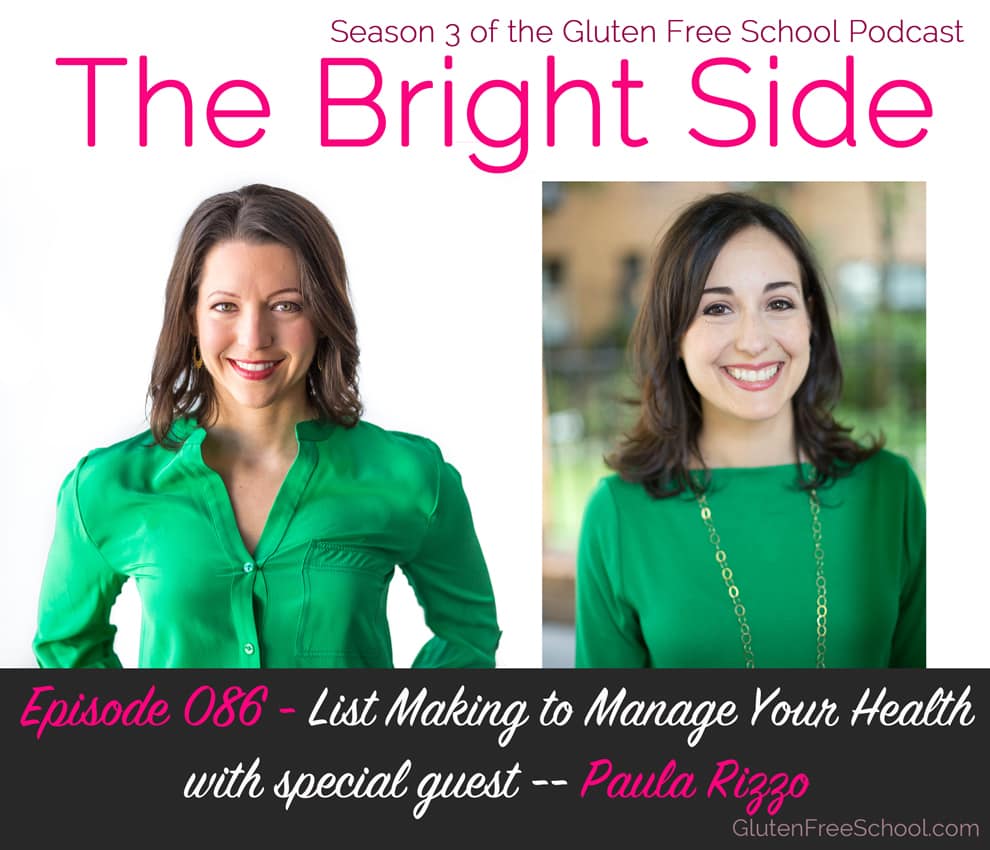
Have you ever waited months (or years) for an appointment with a doctor only to end up blanking at your chance to tell your health story? It happens all of the time. Even though you know what you’ve been through, it can feel like a real uphill battle to organize your health journey in a way that makes sense.
Rambling in the doctor’s chair isn’t usually to your benefit.
And that’s why it’s frustrating to realize that you forgot to share certain details you knew were important. Once the doctor leaves, it may be months before you get the chance to share what was overlooked.
That’s why keeping your health journey straight and on point during exams is crucial.
If you’re reading this, you’ve probably struggled (if not outright suffered) for a long time. And I’d like to see you be better prepared moving forward for every doctor’s appointment you have. It’s my goal to help you get answers more quickly.
When I’ve talked about patient advocacy in the past, creating lists came up. The reason is that it can help you stay focused despite being nervous or anxious about and during your appointment. And they offer you the ability to prevent vital health data from getting lost in the shuffle.
Why Lists Are Key To Organize Your Health (REAL LIFE EXAMPLE)
When my mom had open-heart surgery for a congenital defect in 2016, I was her advocate. The thought of having this massive surgery was incredibly stressful for her. So much so that she literally zoned out after the doctor told her surgery was necessary and failed to hear just about everything else he said after that.
If I’d not been in the room taking notes and asking questions, she may have pushed off the surgery for several months thinking it wasn’t urgent.
Every single time we attended appointments pre- and post-surgery, I had lists of questions, symptoms, medication changes, and such right in front of me. And boy, did it help!
This is why I believe in power of lists in order to organize your health. They keep you on track and help meaningfully move the process forward much more than simply relying on your memory.
I hope you will listen so that you too can discover the value of lists to organize your health (and your life)!
If you haven’t yet subscribed to the podcast CLICK HERE to listen and subscribe through iTunes!!! Then take a moment and leave a review on iTunes sharing what you’ve learned and why others would benefit from listening in as well!
How to Organize Your Health Like a Pro with Paula Rizzo
You might think that list making is boring or dull. But if you’re here, reading this article and following Gluten Free School, you may want to rethink that.
Lists are key to seeing results. They are a way to organize your health so that nothing gets overlooked.
You know what to say and ask the moment the doctor (or practitioner) enters the room.
You won’t kick yourself afterwards for forgetting a question.
But the doctor’s office isn’t the only place they come in handy! I use lists all of the time when it comes to groceries and weekly menu planning.
That’s why I asked my dear friend Paula Rizzo of ListProducer.com to join me and share some of her top tips to organize your health (and life) with lists.
Paula and I met because she discovered that a gluten sensitivity after going through a traumatic health experience. So she knows first-hand how valuable lists can be both on a daily basis as a TV producer for cable news as well as for your health.
In this episode…
– Why lists can be your greatest asset to organize your health
– Different type of lists that you can make that help in the kitchen or in the exam room

– The most critical (and most often overlooked) steps people make when using a list to convey their health story to a doctor
– How lists can benefit you especially when you’re brain feels foggy, you have difficulty remembering things, or you’re just down right exhausted all of the time
– and much more…
How to Organize Your Health Like a Pro SHOW NOTES
Paula’s book -–> CLICK HERE to get your copy of Listful Thinking: Using Lists to be More Productive, Highly Successful and Less Stressed







